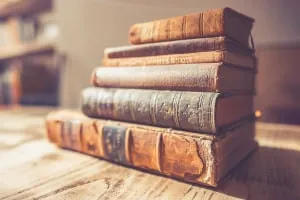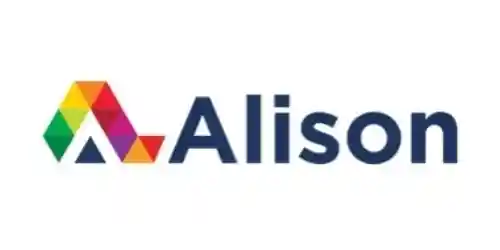
Advanced Diploma in World Literature 
This free online course will take you on a journey through the world of literature, from ancient Mesopotamia to the present day. You will explore different genres, from poetry and drama to novels and essays, and learn about the historical contexts in which they were written. You will also gain insight into emergent genres and texts from less familiar literary traditions. With this course, you will develop critical awareness of literary assumptions and gain the skills to assess other texts from a broader literary framework. Join us and expand your mind with great works of world literature. ▼
ADVERTISEMENT
Course Feature
![]() Cost:
Cost:
Free
![]() Provider:
Provider:
Alison
![]() Certificate:
Certificate:
No Information
![]() Language:
Language:
English
Course Overview
❗The content presented here is sourced directly from Alison platform. For comprehensive course details, including enrollment information, simply click on the 'Go to class' link on our website.
Updated in [August 31st, 2023]
Skills and Knowledge:
- Critical awareness of literary assumptions in different literary cultures
- Understanding of great works of world literature from a broad and interesting perspective
- Knowledge of different literary works and genres, ranging from poetry, drama and short stories to novels and essays
- Historical contexts in which different literary works have been written
- Engagement with texts from different cultures, from Asia to the Americas
- Ability to assess other texts and guard against certain limitations such as translators’ biases or the distance of a text in terms of time.
Professional Growth:
The Advanced Diploma in World Literature course contributes to professional growth in several ways:
1. Enhanced critical thinking skills: The course teaches students to critically analyze and evaluate literary works from different cultures and time periods. This skill is valuable in any professional setting as it allows individuals to think critically and make informed decisions.
2. Cultural awareness and sensitivity: By studying literature from different cultures, students gain a deeper understanding and appreciation for diverse perspectives and experiences. This cultural awareness is essential in today's globalized world and can contribute to more effective communication and collaboration in professional settings.
3. Expanded knowledge base: The course covers a wide range of literary genres and traditions, exposing students to a diverse range of texts. This expanded knowledge base can be valuable in various professional fields, as it allows individuals to draw on a broader range of references and examples.
4. Improved communication skills: Studying literature involves analyzing and interpreting complex texts, which can enhance students' reading, writing, and communication skills. These skills are essential in many professional roles, such as writing reports, presenting ideas, and communicating with clients or colleagues.
5. Increased creativity and imagination: Literature often challenges conventional thinking and encourages creative and imaginative approaches to problem-solving. By studying world literature, students can develop their own creativity and think outside the box, which can be valuable in professional fields that require innovative thinking.
Overall, the Advanced Diploma in World Literature course contributes to professional growth by developing critical thinking skills, cultural awareness, knowledge base, communication skills, and creativity. These skills and attributes are highly valued in many professional settings and can contribute to career advancement and success.
Further Education:
This course is suitable for preparing further education. It provides a comprehensive overview of world literature, including different genres and literary traditions. It also teaches critical awareness skills, which are important for analyzing and interpreting texts. Additionally, the course covers works from different cultures and time periods, helping students gain a broader understanding of literature. Overall, this course can help students develop the necessary skills and knowledge for further education in literature or related fields.
Course Syllabus
Great Epics of World Literature
In this module, you will be introduced to the fundamentals of world literature. You will learn how to define and understand world literature in a historical context. You will also be taught about the relationship between antiquity and modernity with regard to literature around the world. Then, you will also learn the epic tale The Epic of Gilgamesh. Next, you will learn the importance of the openness of the Western canon with the narrative poem Beowulf. Finally, you will analyze The Lusiads.The Translation Practice and The Postmodern Narrative
In this module, you will be introduced to the challenges and possibilities for world literature. This will include the translation and analysis of the practice of translation. Next, you will be taught the four main challenges in the context of world literature and the different modes of translation, as well as the postmodern narrative elements. You will learn about the fragmentation and the hypertextual references that are part of the narration.Poems from World Literature
In this module, you will be taught the idea of a nation becoming more significant than individuals. You will also learn the narrative technique used by Borges as a writer. Then, you will learn the story of a woman's tragedy and how the old ways changed after the civil war in the American South. You will also learn the origins of the sonnet and the difference between the two forms of sonnets. Finally, you will learn the materiality of the body of human existence seen through the poem Tortures.Marriages, Tragedies and Questioning
In this module, you will be introduced to contemporary observations where postcolonial literature is seen as world literature. Then, you will be introduced to one of the greatest of Shakespeare's tragedies, Othello. The destruction of love through jealousy plays a significant role. You will learn how Shakespeare transformed the classical notions of the theatre. Finally, you will learn about a story that questioned the traditional roles of men and women in the 19th century.Great Literary Works and Great Historical Moments
In this module, you will be shown how Nora emerges as a very strong-willed individual in A Doll's House and how the text has been seen as a proto-feminist text and a humanist text. Next, you will also learn about the need to bring women outside of the home space, the criticism of our culture that undermines the right to intellectual freedom and intellectual development. Finally, you will learn the narratives techniques and a short work of prose fiction that criticises England's colonialism.Aesthetics of Antiquity
In this module, you will be introduced to the biggest literary works with an aesthetic from antiquity. This will include Aristotle's approach towards art as the supreme imitation of literature. You will also study the conception of poetry, tragedy and rhetoric which are the foundations of. Then, you will learn the principles and the kinds of imitation in the arts. Finally, you will learn the relationship between the text and the audience and the power of the sublime as an involuntary thing.Collective and Individual Memories
In this module, you will be introduced to the publication and the aspects of memory which are in an inherent part of many discussions in the context of Midnight’s Children and the political allegory that narrates the story of modern India. Next, you will learn the political nature of the act of writing, the narrative elements and strategies adopted. Finally, you will learn how difficult it can be to settle in a new society, the unspoken things and details of the diasporic experience.Poems and Magic Realism
In this module, you will be introduced to the character and the many narrative elements and techniques of Marquez's work which includes how an object of art also can be seen in different ways and how the right kind of person with the aesthetic sensibility can understand this. You will also learn about the typical modernist poem and one of the most difficult of the 20th-century and an iconic representative literary piece of the modernist period.The Wall and The Applicant
In this module, you will be introduced to the classical literature references and the narratives within which the poem The Wall continues to be situated in a canonical status and the dilemma of engaging with existentialism, life, death and the power of human will. You will also learn the ways in which the personal and the political intersect Sylvia Plath's ideas of feminism, marriage, gender stereotypes and social pressures.Literature to Claim
In this module, you will be introduced to the concept of womanism which is a social theory based on the history and everyday experiences of women of colour, especially black women. You will also learn the role of literature that is played in bridging the gap between protest and democracy and their intrinsic link. Finally, you will also learn the way in which literature has always been a powerful medium to impact on society.Bureaucracies
In this module, you will be introduced to the nature of power through Kafka's critique of the protagonists in the play and their relationship with power and how The Metamorphosis contributes to Kafka’s place in world literary canon and the political connotations of it. You will also learn how sexuality, religion and issues with your identity define and influence Kafka's work. Finally, you will learn how the bureaucratic systems drive a man into madness.Great Authors and Great Stories
In this module, you will be introduced to the political and erotic fantasy of Poprishchin. You will study the sincerity of the emotions present in the text and the sense of identity. You will learn about the materiality of the body found in Poprishchin. Finally, you will learn about the exile experience and the consequences of globalisation from a postcolonial perspective, the immigrant experience and the idea of the self-made man in the Great Gatsby.Course assessment
Course Provider

Provider Alison's Stats at AZClass
Discussion and Reviews
0.0 (Based on 0 reviews)
Explore Similar Online Courses

What is ChatGPT? Will it replace Salesforce Developers?

ChatGPT for Beginners: The Ultimate Use Cases for Everyone

Python for Informatics: Exploring Information

Social Network Analysis

Introduction to Systematic Review and Meta-Analysis

The Analytics Edge

DCO042 - Python For Informatics

Causal Diagrams: Draw Your Assumptions Before Your Conclusions

Whole genome sequencing of bacterial genomes - tools and applications

Write a Killer Literature Review

English Literature: Be as Informed as a Literature Graduate


Start your review of Advanced Diploma in World Literature